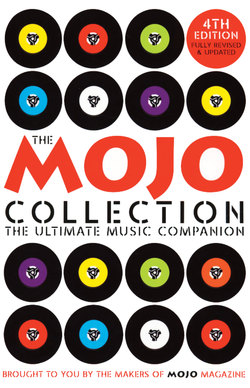Читать книгу The Mojo Collection - Various Mojo Magazine - Страница 29
На сайте Литреса книга снята с продажи.
Billy Fury The Sound Of Fury Driving debut from the UK’s only decent answer to Elvis, the man who had more hits in the ’60s than The Beatles.
ОглавлениеRecord label: Decca
Produced: Jack Good
Recorded: Decca Studio 3, West Hampstead, London; January 8, 1960 and April 4, 1960
Released: May 1960
Chart peaks: 18 (UK) None (US)
Personnel: Billy Fury (v); Joe Brown (g); Reg Guest (p); Bill Stark (acoustic bass); Alan Weighell (b); Andy White (d); The Four Jays (bv)
Track listing: That’s Love (S/UK); My Advice; Phone Call; You Don’t Know; Turn My Back On You; Don’t Say It’s Over; Since You’ve Been Gone; It’s You I Need; Alright, Goodbye; Don’t Leave Me This Way
Running time: 21.53
Current CD: Decca 8449902 The Sound Of Fury: 40th Aniversary Edition
Further listening: Halfway To Paradise (1961); The One And Only (1983)
Further reading: Wondrous Face: The Billy Fury Story (Spencer Leigh, 2005); www.billyfury.co.uk
Download: Not currently legally available
Only a handful of early British rockers merit favourable comparison with their maverick American cousins. Cliff Richard, Lonnie Donegan and Johnny Kid may have had their moments, but only Billy Fury could really be considered the English Elvis. In April 1960, after a reasonably successful run of singles, Decca sent 20-year-old Fury into the studio to record a 10-inch long-player and, unusually for the times, the songs were all penned by Fury himself. (Impresario Larry Parnes had signed Ronald Wycherley [as was] at least partly on the strength of his compositional ability.) Producer Jack Good had assembled the customary crew of sheet-music-reading jazz musicians for the session, but had added the rocking young guitarist Joe Brown to the line-up. Brown had backed Eddie Cochran and Gene Vincent on tour, and remembers Good’s instructions vividly: ‘The record was Jack’s take on the Sun Studio sound. He had even hired electric and stand-up bass players to double up to get Bill Black’s big slapped bass sound. He asked Reg Guest (piano) to play like Floyd Cramer and told me to do my Scotty Moore. We did a run through of each number and then a take. Practically everything was done in one go.’
The result is a powerful, varied set with loud echoes of Memphis 1954 – Since You’ve Been Gone mirrors the tempo-change tomfoolery of Elvis’s Milk Cow Blues. Elsewhere Fury’s sweet, edgy tenor is often the spit of Cochran’s. There are also hints, however, of something new. The ballad You Don’t Know exudes a peculiarly British sense of vulnerability – Fury’s Liverpudlian vowels resonating through the sparse arrangement. As Brown attests, ‘Even though we knew we were copying the Yanks, of course we brought something of our own upbringing to it as well.’
The Four Jays (hired to imitate The Jordanaires) were later managed by Brian Epstein and gained success as The Fourmost. A curiously shy star, Fury continued to have hits well into the ’60s and was charming as the self-parodic Stormy Tempest in the film That’ll Be The Day. Unfortunately, he was chronically ill throughout the ’70s and died in 1983. But amongst his many achievements was an album, which marks the moment when British rock’n’roll grew up.
